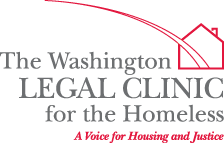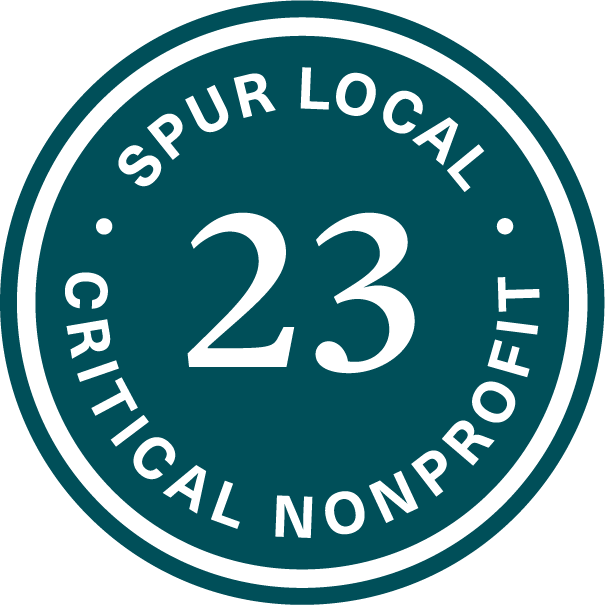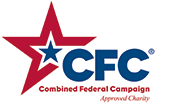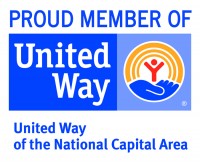The following is an adaptation of testimony provided by Amber Harding on March 1, 2021 before the DC Council Committee on Human Services,
at the performance oversight hearing on the DC Department of Human Services (DHS). The full testimony can be found here.
2020 was a rough year, without question. But when the world turns upside down, it provides an opportunity to reassess what we may have accepted as true, or right, or just how things are. We at the Legal Clinic want to take this opportunity to lay out some of the lessons we hope DC comes away with regarding homelessness.
Homelessness is preventable—its existence is a political choice.
There has been a fair amount of celebration from the Bowser Administration for how drastically family homelessness (as defined by the number of families in shelters) has decreased this year. The Director of DHS attributed the decrease to the agency’s effort at “system reform,” but the most obvious, substantial driver for the decrease is the eviction moratorium that has been in effect for almost a year, and, relatedly, the moratorium on time limit exits from rapid re-housing. (As the authors of the recent Georgetown eviction study recently concluded: “While the Rapid Rehousing Program aids households to exit shelters more quickly, it may be contributing to eviction rates in the District. More long-term solutions like permanently affordable housing can be more effective at achieving housing stability.”)
When elected leaders choose to stop evictions and rapid re-housing terminations, the results are clear—homelessness decreases. This effect lays bare how decisions in more “typical” years—to allow thousands of evictions to move forward with little relief for renters—create and sustain homelessness.
The lesson: DC must dedicate enough resources to prevent every possible eviction, extend time-limited subsidies, and drastically increase its investment in deeply affordable housing.
Safe, private shelter and housing saves lives. 
Our clients have said for years that they get sick in large congregate shelters. We have clients who sleep on the street because they feel safer there or have fewer illnesses. Yet shelters continue to be large communal spaces, and even when Mayor Bowser replaced DC General, she (and the Council) refused to concede that private space is fundamental to safety, dignity, and good health. Instead, families must share bathrooms and living space.
Then the pandemic hit. We were inundated with messaging to social distance, to stay home, to avoid mixing households. But homeless people weren’t given the opportunity to follow health guidelines. They were forced to share bathrooms and dining areas with strangers. Hundreds of homeless people without kids were forced to sleep in rooms with dozens of strangers, sometimes just a few feet away.
The first COVID-19 case in DC was March 7. The first case among people experiencing homelessness was March 31. In just one month, over 200 homeless persons were infected. As of March 15, 523 people experiencing homelessness have contracted COVID-19 and 25 have died. Some people have contracted it more than once. A recent study concluded that the mortality rate for people experiencing homelessness in DC is twice the mortality rate of the general population, and higher than any other city surveyed.
Eventually, DC moved over 600 people who doctors determined to be at high risk of dying of COVID-19 into a hotel program, called the Pandemic Emergency Program for Medically Vulnerable Individuals (PEP-V). Over 600 high risk individuals, though, remain on the waiting list for PEP-V. With the announcement by the Biden Administration that 100% of costs for these hotels would be reimbursed, including retroactive payments, we expected DHS to expand the program. That has not happened. Instead, two more people have died of COVID-19 since that announcement. DC must expand PEP-V immediately to prevent further loss of life, and to accommodate every high-risk person experiencing homelessness.
As much as we support the expansion of PEP-V, though, we do not endorse the position DHS has taken—that PEP-V is not covered by the Homeless Service Reform Act (HSRA), the law that governs homelessness service programs in DC and the legal rights of residents interacting with those programs. Without legislative change confirming that PEP-V is covered by the HSRA, DHS will continue to deny due process rights to PEP-V residents. High risk individuals should not have to jettison their legal rights just to survive the pandemic.
With new federal money coming into DC that allows DC to invest in longer term non congregate shelter spaces, we hope that DC will revisit its plans for new shelters with an eye to creating much smaller and more private spaces for people to be when they become homeless. If DC had had humane shelters, the numbers of homeless people impacted, dozens fatally, by COVID would be far smaller. There is no excuse for continuing to force people to live in such settings.
The lesson: DHS needs to expand PEP-V to meet the full need and bring all sites into compliance with due process. If DHS does not voluntarily come into compliance, the Council needs to amend the emergency authorization for PEP-V to clarify that it is an HSRA-covered program. The Interagency Council on Homelessness needs to explore federal funding opportunities and revisit shelter redesign to maximize the privacy and safety of future shelters.
Update: 11 members of the DC Council sent Mayor Bowser this letter on Friday, March 26, 2021, asking her to expand PEP-V immediately!
4/2 Update: DHS announced it will be opening another hotel for 200 people! That is great, but at least 456 more people will need hotel rooms after that happens. Send the Mayor a quick email to thank her and ask her to keep it up here.
To be humane and anti-racist, programs must be low barrier.
Collecting and submitting documents for verification of eligibility is difficult and can get in the way of receiving lifesaving services. When the pandemic hit, DC streamlined many of its programs to try to make them lower barrier. The sky has not fallen. There are no reports of widescale fraud. These changes should be celebrated and maintained post-public health emergency.
Yet emergency shelter for families remains extremely high barrier, perhaps the highest barrier public benefit program in the District. We regularly get calls from families who are turned away from shelter because they can’t provide documentation that they have nowhere to go—a burden imposed on families not by the law, but by DHS. (The burden is actually on DHS to prove that someone has a safe place to go, not on the applicant to prove that they do not have a safe place to go.)
This high-barrier, unlawfully-run, intake system is dangerous to families every day. During a pandemic it is particularly cruel. Just in the last two months, here are some examples—in each case, the family was not placed until a lawyer intervened:
- During a snowstorm, a mom was told she could not go into shelter because she is on her mother’s voucher. She explained that her mother had kicked her out of the apartment and had physically assaulted her, leading to a stay away order.
- A mother was told she could not be placed in shelter until she provided her mother’s lease to show she wasn’t on it, a letter from her uncle’s landlord saying she can’t stay there, and additional names of friends and family members she could potentially stay with. Since she couldn’t get the documents, she was denied shelter.
- A family was denied shelter even after the family they were doubled up with tested positive for COVID-19.
- A mother and her one-year-old child slept in a hallway after being unable to provide an aunt’s lease to prove they were not on it.
- A pregnant woman in her third trimester was denied family shelter because Virginia Williams determined that she could stay in a hypothermia shelter for women.
A little math shows that these stories are not, as DHS often claims, exceptions or one-offs. In its performance oversight responses (question 44, page 66), DHS states that, in FY20, 7463 families applied for shelter through Virginia Williams and 1180 families applied through the hotline, for a total of 8643 applications. Out of those applications, only 807 were deemed eligible and placed in shelter. Although DHS splits the denials up into 1705 referred to the Homeless Prevention Program and 867 found ineligible, a referral to Homelessness Prevention Program is also a denial of shelter and finding of ineligibility. Using these numbers, only 9.3% of applications for family emergency shelter were granted in FY20—a 90.7% denial rate. For FY21, the denial rate has risen to 94.6%– during a period of time that included many hypothermic nights.
High barrier programs are not just harmful—they are also racist. Pernicious, poisonous myths that poor Black people game the system to get public benefits, cannot be trusted to tell the truth, or do not know what is best for themselves or their families form the foundation of DC’s high barrier family shelter intake. If families apply for emergency shelter, it is because they have decided that shelter is safest option for their family. That decision is not an easy one for most families, and DHS should respect that families know what is best for them.
The lesson: DC needs to recommit to a low barrier family shelter intake system during the pandemic and beyond. The HSRA should be amended to allow self-certification for all elements of eligibility.
External forces impact poverty and housing affordability.
This pandemic has laid bare the core flaw of rapid re-housing: its arbitrary time limit leaves no room for crisis. DHS was, rightfully, quick to decide that it would be unfair and unwise to terminate families when a global pandemic interfered with a family’s ability to increase their income and afford market rent. But the speed and clarity of that decision stands starkly in contrast with their historic refusal to consider a more individualized exit policy for families in the program. The COVID-19 pandemic is not the only factor outside of families’ control. What about the lack of available jobs that pay enough for families to be able to afford rent? Lack of affordable childcare, education, or housing? Centuries of systemic racism?
Individual decisions or motivation are not primary causes of housing instability. Building a program around the myth that families, almost exclusively Black families, need an arbitrary time limit to motivate them to increase their income is racist. Cutting families off from support before they can afford the rent is unjust, pandemic or no, and disproportionately harms Black families. DHS admits in its performance oversight responses that in FY20 that only 17% of families were exited from rapid re-housing because they no longer required assistance. (Question 64, Page 90.)
People who are suffering from housing instability because of the pandemic or co-occurring recession are worthy of support. But so those suffering from housing instability because of a myriad of other external forces, some centuries in the making.
The lesson: DC must do away with arbitrary time limits in programs, including rapid re-housing, and focus on resolving systemic inequities that have led to widescale housing instability and lack of deeply affordable housing.
With a significant infusion of federal dollars, a new understanding of the importance of housing as healthcare, and a commitment by DHS to undergo an analysis of the racial equity impact of its programs, now is the time to take these lessons to heart and make substantial changes to the status quo.
Five ways to advocate now for safer shelter and more permanent housing placements.
- Send this one-click email action. Thank the Mayor for expanding the hotel program, but ask her to keep expanding PEP-V until every high-risk person is placed, and to invest in deeply affordable housing and reimagining our shelter system.
- Sign this petition demanding that Mayor Bowser increase non congregate shelter and housing placements to save lives. If you’re part of an organization that wants to sign on, email amber@legalclinic.org. (Check out this post to see all of the organizations already signed on!
- Contact DC Council. Email your ward Councilmember and all the at-large members to remind them of the lessons 2020 taught us and ask them for their support. (You can find their contact information here.)
- Take to Twitter. Use the hashtag #WhatHomeDC and tag @MayorBowser, @ZLauraJeanne (DHS Director Zeilinger) and @BrianneKNadeau in your tweets.
- Spread the word! Share these asks, including the petition, with your friends, family, and social media circle!





